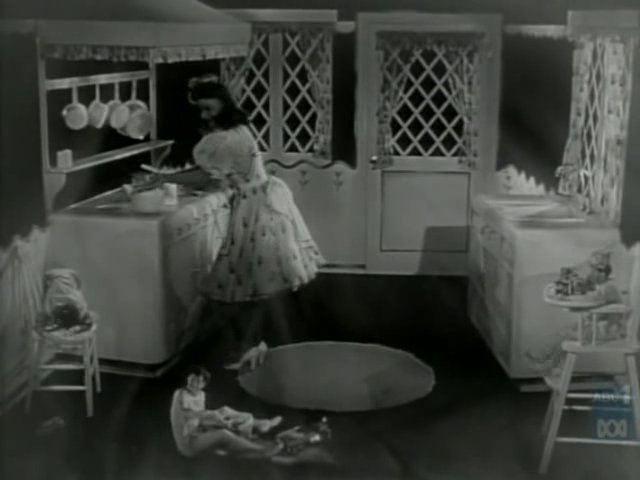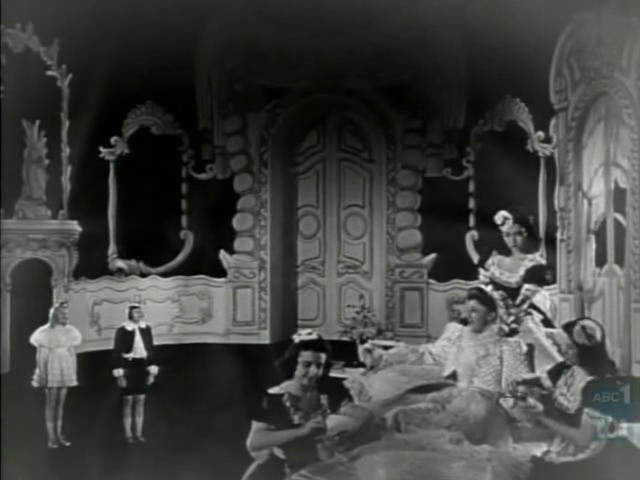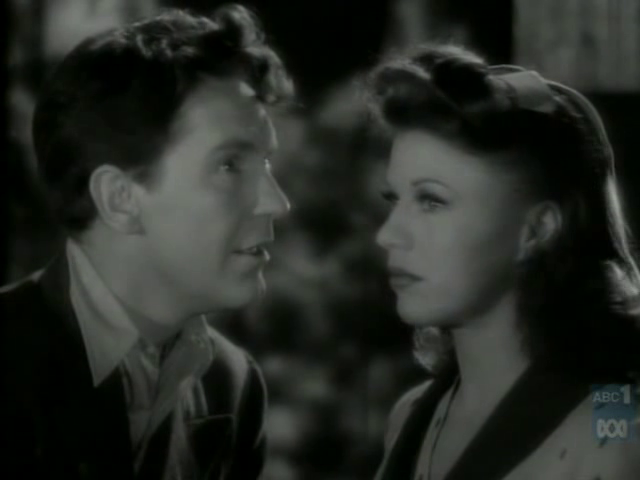|
Genres, Themes, Actors, and Directors:
- Burgess Meredith Films
- Ginger Rogers Films
- Gold Diggers
- Love Triangle
- Romantic Comedy
Review:
Garson Kanin is best known as a highly regarded screenwriter, but he also directed a few feature films, including this creatively conceived romantic comedy about a socially ambitious telephone operator trying to decide between three radically different suitors. Unfortunately, Rogers is at her most annoying here, inappropriately affecting a girlish tone of voice — much like the one she would use the following year to better purpose in The Major and the Minor (1942) — and blithely shifting romantic allegiances with little concern for anyone other than herself. Setting that enormous caveat aside, however, the rest of the film remains a witty delight, thanks to a consistently sharp screenplay (by Paul Jarrico, based on his own story), and the incorporation of several eye-popping fantasy sequences, which are unlike anything you’ll see in similar films of the period. Meanwhile, Burgess Meredith gives one of his best, most appealing performances as a proto-hippie living a life of penniless contentment; it’s easy to see how he manages to become a viable contender in Rogers’ quest for marital satisfaction (though what he sees in her is an entirely different question).
Redeeming Qualities and Moments:
- The incredibly creative fantasy sequences



- Burgess Meredith as Harry

Must See?
No, though it’s strongly recommended simply to check out the fantasy sequences.
Links:
|
One thought on “Tom, Dick, and Harry (1941)”
A once-must, for its clever screenplay and for Kanin’s direction.
My ‘once-must’ decision did not come easily…but I’ll explain. I knew I had seen this many years ago but I’d forgotten it completely. In part, it’s easy to see why.
As noted, Rogers’ role is problematic, not so much because of her affected voice but because the character she’s playing is something of a dunderhead. (As her kid sister makes clear early on, “She gets more adolescent every day.”) So, yes, what any guy could see in her is an issue. Oddly, though, her character – as is – is part of the point of Jarrico’s script: true love being that certain thing that no one can really explain or understand. This main point is driven home in an extremely satisfying manner just seconds before ‘The End’ flashes on the screen.
Along the way there, though, there’s much to enjoy in Jarrico’s often-surprising (occasionally progressive) dialogue, as well as in his plot construction and Kanin’s keen handling of the material. Things progress so smoothly and efficiently that one can almost overlook the fact that Rogers is not the ‘heroine’ we would like to have. But then, if she were the type one could more easily relate to, it’s doubtful that the very effective (and zany) dream sequences could come off as well as they do. (My fave dream is the final one, in which Rogers’ Janie – to hilarious effect – decides to marry all three men. Now *there’s* a concept!)
Note: Jarrico fell victim to HUAC and for a number of years his scripts had pseudonyms attached.